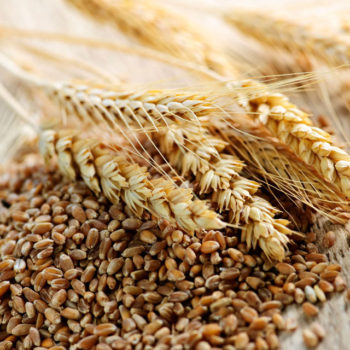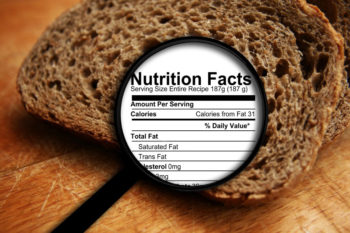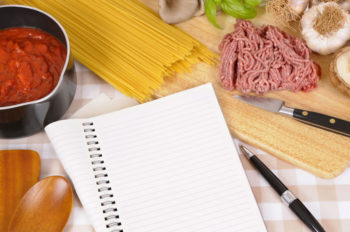Whether you’re suffering from coeliac disease, are gluten intolerant or just want to avoid wheat, we’ve got all the info you need to thrive on a gluten-free diet.
But first, what IS gluten actually?

Gluten is a protein found in barley, rye and wheat. Think of it as the glue that holds bread and pasta together. A sensitivity to gluten is one of the most widespread food-related sensitivities.
Here are our top 8 tips for making sure your gluten-free diet is a success
- Get organised and get rid of any food in your kitchen that contains gluten
Start getting familiar with all the food labels in your kitchen. If anything contains wheat or gluten, donate it to someone who eats gluten. It’s safe to assume that food like baked goods, wheat-based cereals and pasta contain gluten. We’ve also got a handy list of food you may not know contains gluten.
- Eat foods that are naturally gluten free

Picture: iStock.
Fresh fruit and veggies are your best bet — healthy, delicious and gluten free. A lot of people worry they won’t get to eat any carbs, but remember, rice, potatoes and corn are all gluten free.
- Stock up on gluten-free alternatives
Now that you’ve purged your pantry of gluten, it’s time to go shopping! Here’s a list of our favourite places to stock up on all sorts of health food — including gluten-free products. Some of the stockists are online, so you won’t even have to leave your couch to do it.
Some great gluten-free staples include:
Flour alternatives: chickpea flour, rice flour, almond flour, cornflour, mealie meal, sorghum, tapioca starch
Grain alternatives: polenta, quinoa, rice, buckwheat, millet
Other: sago, tapioca (which are great for desserts!)
- Always read the labels on products

Picture: iStock.
Check the labels on ready-made and convenience foods, which often include ingredients that contain gluten. Look out for soy sauce, malt, stock cubes and salad dressings, which can be sources of hidden gluten.
Remember to check the label for wheat AND gluten — a product that is wheat free may not be gluten free.
- Know which alcohol to avoid
Wine, cider and spirits should all be gluten free, but could get cross-contaminated with gluten depending on a producer’s production process. Most beers aren’t gluten free, so you may have to forgo that.
- Don’t over indulge on gluten-free processed foods
Although gluten-free cakes, cookies and chips don’t contain gluten, eating a whole lot of fat and sugar isn’t good for anyone. Keep in mind that ‘gluten free’ doesn’t necessarily mean ‘healthy’ and a balanced diet is still important, even on a gluten-free diet.
- You can still eat out and get take aways
Although fried and crumbed food is usually out, a lot of restaurants now offer gluten-free pizza and pasta options. Meat is usually always gluten free (but watch out for the sauces which may not be gluten free) and Indian food, like curry, is usually thickened with yoghurt and nuts instead of wheat flour. When in doubt, phone a restaurant and check, or try one of these restaurants all over South Africa that will cater to your gluten-free diet.
- Plan ahead

Picture: iStock.
When you’re starting out on a gluten-free diet, planning is key. Use online resources to research and plan gluten-free recipes and meals. Let friends and family know you’re avoiding gluten BEFORE you arrive for dinner, and investigate restaurants in advance so you know you’ll find something to eat.
If you want to go gluten free, but aren’t sure where to start, sign up to our #7Days #FreeFrom gluten newsletter. For one week, we’ll send you all the recipes, tips and inspiration you need. Sign up for free here.
DISCLAIMER: Before starting any diet, you should speak to your doctor. You must not rely on the information on this website/newsletter as an alternative to medical advice from your doctor or other professional healthcare provider.

